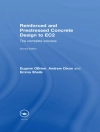This book presents select proceedings of the International Conference on Interdisciplinary Approaches in Civil Engineering for Sustainable Development (IACESD 2023). The topics covered include geographic information systems (GIS) and building information modeling (BIM), integration of numerical methods for fluid flow modeling, and the revolutionary potential of 3D printing within the construction industry. This book serves as a resource material for researchers and industry professionals interested in developing solutions for sustainable and resilient infrastructure that aims for communities with Net Zero Targets.
Inhoudsopgave
Recent Advances in Civil Engineering for Sustainable Communities – An Introduction.- Investigation on Compressive Strength of Fibre Reinforced Concrete Using Artificial Neural Network.- Conventional and Ensemble Machine Learning Techniques to Predict the Compressive Strength of Sustainable Concrete.- Experimental Study on Strength Properties of Concrete Incorporated with Bacteria.- Predicting the Porosity of SCM-blended Concrete Composites Using Ensemble Machine Learning Models.- Ensemble Machine Learning Models to Predict the Compressive Strength and Ultrasonic Pulse Velocity of Sustainable Concrete.- Prognosis of Concrete Strength: The State of Art in Using Different Machine Learning Algorithms.- Experimental Study on Strength and Durability Characteristics of Mortars with Ti O2 Nanoparticles.- Optimizing Sustainable Construction Materials with Machine Learning Algorithms: Predicting Compressive Strength of Concrete Composites.- Group Indexing of Fly Ashes using Unsupervised.- Learning and Fuzzy Clustering Techniques.- Study on Self-Healing Properties of Bacteria based Cement Mortar with Eggshell Powder and Jute fibre.- A Study on Repair Effectiveness of Damaged RC Beams with Circular Openings Using CFRP Sheet.- ELA and AAR Dynamics of Glaciers in Chandra Basin, Western Himalayas.- GIS Applications and Machine Learning Approaches in Civil Engineering.- Structural Health Monitoring by Simultaneous Measurement of Strain and Temperature Using Different Materials.
Over de auteur
Prof. N. Vinod Chandra Menon has worked as Professor in the Centre for Disaster Management at the Yeshwantrao Chavan Academy of Development Administration (YASHADA), Pune. He has worked as Incharge of Emergency Preparedness and Response in UNICEF India Country Office in New Delhi. He is currently Adjunct Professor at Amrita Vishwa Vidyapeetham, India; President of Red R India; and Regional Director of Asia of the International Emergency Management Society (TIEMS) Oslo. Prof. Menon has over 37 years of working experience, of which more than a quarter century has been in the fields of disaster risk reduction, climate change adaptation, and public policy analysis. He was Member of the High-Powered Committee (HPC) on Disaster Management established by the Government of India in 1999. He is also one of the founder members of the National Disaster Management Authority (NDMA), Government of India, chaired by the Prime minister of India, and he served in this capacity from 2005 to 2010.
Dr. Sreevalsa Kolathayar pursued M.Tech. from IIT Kanpur, Ph.D. from IISc, and served as International Research Staff at UPC Barcelona Tech Spain. He is Associate Professor at the Department of Civil Engineering, National Institute of Technology Karnataka (NITK) Surathkal, India. He has authored five books, edited twelve books, published over 100 research articles, and holds two patents. He is on the Editorial Board of several international journals. In 2017, The New Indian Express honored him with South India’s Most Inspiring Young Teachers Award. He received the ISET DK Paul Research Award from the Indian Society of Earthquake Technology for the best Ph.D. thesis on Earthquake Risk Reduction in India. He received the ‘IEI Young Engineers Award’ from The Institution of Engineers (India) in 2019. He is on the roster of two technical committees of ASCE Geo-Institute and is Member of the Working Groups of BIS CED 39 for three IS codes. Dr. Sreevalsa has eight funded R&D projects and completed over 50 civil engineering consultancy projects.
Dr. Hugo Rodrigues is Associate Professor with Habilitation at the Department of Civil Engineering of the University of Aveiro, teaching several topics related to Structural Analysis, Building Pathology, and Rehabilitation. He received his Ph.D. in Civil Engineering from the University of Aveiro. His is experienced in seismic analysis, having coordinate and participated research and applied research projects and also on specialized consultancy studies ordered by several public institutions and companies regarding the assessment of seismic risk. Over the last decade, he has been researching the field of Building Rehabilitation, Structural Health Monitoring, and Seismic Safety, including experimental and numerical activities.
Dr. K. S. Sreekeshava is currently working as Associate Professor and Head of the Department of Civil Engineering, Jyothy Institute of Technology, Bengaluru. He obtained his Ph.D. from BMS College of Engineering, Visvesvaraya Technological University, Belagavi, in the year 2020. His research interests are in the field of Masonry Structures, Biocomposites, and Structural Design. He has published more than 30 research articles in reputed journals, Elsevier and Springer publishing houses. He has successfully coordinated funded AICTE-ISTE and AICTE Teaching and Learning (ATAL) Academy Sponsored Faculty Development Programme. He has the honors of Life Member of ISET, ISTE, ICI, INSC, NICEE, and IAENG. He has successfully completed the research funding grant under competitive research funding scheme initiated under scheme of TEQIP by Visvesvaraya Technological University, Belagavi. Dr. Sreekeshava is Organizing Chair of G20 C20 International Conference on Interdisciplinary Approaches in Civil Engineering for Sustainable Development (IACESD 2023).












